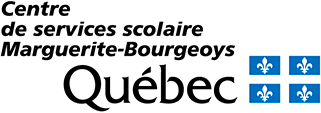Framework for Intervention
The framework for intervention in disadvantaged areas of A Montréal School for All (AMSFA) include the following foundations, key components, predictors of success, and practices.
Foundations
- “Believing that everyone can be educated means believing that every student, regardless of social and economic background, culture or language, has the capacity to learn and succeed.”
- “Believing in our ability to influence learning means believing in the capacity of school stakeholders to support learning by all students.”
(Reference Manual for Intervention in Disadvantaged Areas, MEES, 2020, p. 5)
Key Components
- Acknowledge and legitimize the students’ life experiences
- Provide leadership in the area of social justice
- Involve the education community
- Continuously develop and use expertise
- Intervene early and throughout the students’ schooling
(Reference Manual for Intervention in Disadvantaged Areas, MEES, 2020, p. 31)
Predictors of Success
In order to close the achievement gap and to rebuild equity and equal opportunity for children in disadvantaged areas, interventions are based on the best predictors of success and retention identified by research, namely:
- Literacy
- Numeracy
- Engagement
Practices
Organizational and Administrative Practices
School administrators must exercise a moral and ethical leadership anchored in the values of social justice. Not only must they bring the entire school team on board with this vision, but they must also make it known to the community. To this end, AMSFA offers a professional development network for principals and vice-principals.
Educational and Pedagogical Practices
The school staff must implement practices that take into account students’ experiences and that reduce school and social inequalities. Therefore, AMSFA offers training sessions and personalized support to build the capacity of school staff to implement educational and pedagogical practices that are based on research data and knowledge of the milieu.
Artistic and Cultural Practices
The objective of the artistic and cultural practices of AMSFA is to provide access to culture and to culturally enrich students from Montréal’s disadvantaged areas. This access enlarges the students’ vision of the world and helps them to express their identity. Partnerships with the cultural milieu offer opportunities for different creative avenues to be explored. These provide diverse contexts for learning where the power to act, to speak out and be civically engaged is valued.
Family Collaboration Practices
The ongoing collaboration between the school and the family is essential, even though it may be somewhat of a challenge in a disadvantaged area. The recognition of the uniqueness and special characteristics of each family is at the foundation of a just and equitable school, in which ALL can participate.
Collaborative Practices with the Community and Institutional Partners
Many community and institutional partners can serve to support the strategies put forward by the school to promote the educational success of all its students as well as to support families. They are part of the wider educational community. In view of the multidimensional conditions of living in poverty (social, economic, material and cultural) and the plurality of disadvantages (intersectionality of conditions) experienced by many Montréal families, the role of these partners must be encouraged and strengthened. To anchor the school in its community means broadening its scope while increasing its capacity to meet the needs of students and families.









